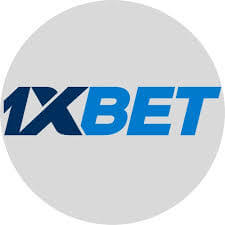
sports betting 1xbet has become one of many platforms where bettors of all levels can access markets worldwide, but success in sports betting depends far more on approach than on choice of bookmaker.
Sports betting has evolved from a casual pastime into a sophisticated activity that blends statistics, psychology, and disciplined money management. Whether you are a newcomer attracted by the excitement of wagering or an experienced bettor seeking to refine your edge, understanding the core principles can dramatically influence long-term results. This article walks through essential concepts, common strategies, and practical tips to help you bet smarter and safer.
First, know the markets. Sports betting encompasses singles, accumulators (parlays), handicaps, totals (over/under), futures, props, and live in-play wagers. Each market carries its own risk profile and requires specific knowledge. Singles and simple handicaps are easier to analyze and maintain a lower variance, whereas accumulators offer larger payouts but compound risk, often turning small edges into long losing runs.
Odds format matters too — decimal, fractional, and moneyline odds express the same probability in different ways. Learning to convert odds to implied probabilities is crucial: implied probability = 1 / decimal odds. If your estimate of the event’s true probability exceeds the implied probability, you have a value bet. Value — not simply picking winners — is the bedrock of professional betting.

Bankroll management is arguably the most important discipline. Allocate a dedicated bankroll that you can afford to lose, and determine stake sizes based on a percentage model. Flat staking (betting the same amount each time) reduces variance, while proportional staking (such as the Kelly Criterion) adjusts stakes according to your edge and confidence. The full Kelly is aggressive and can lead to large swings; many professionals use a fractional Kelly to balance growth and drawdown risk.
Analytics and research distinguish successful bettors. Dive into team form, injuries, head-to-head records, weather, schedule congestion, and lineup trends. Advanced bettors build models incorporating Poisson distributions for football scores, Elo ratings for team strength, or regression models for player performance. Public data and APIs make it easier than ever to test hypotheses, but beware of overfitting: a model that predicts historical results perfectly may perform poorly on new data.
Shop for odds and read the market. Different bookmakers offer different prices and limits; shopping for the best odds increases your long-term return. Line movement can reveal where the money and insight are going — large shifts may indicate sharp money or insider information. Conversely, contrarian strategies that fade public money can work when markets overreact, but they require discipline and evidence.
Live betting opens additional opportunities but demands quick decisions and a focused strategy. In-play markets can be inefficient early in a match or during volatile moments. Watching the event and tracking momentum, substitutions, or tactical changes can uncover short-lived edges. Maintain strict staking discipline — the speed of live markets can amplify losses if you chase events emotionally.
Psychology plays an outsized role. Confirmation bias, chasing losses, and overconfidence are common pitfalls. Keep a betting journal documenting the rationale for each wager, the stake, and the outcome. Periodic review helps identify leaks in your strategy and emotional patterns that undermine performance. Treat betting as a business: track ROI, strike rate, and variance, then iterate on what works.

Understand bonuses and promotions with a critical eye. Free bets, enhanced odds, and welcome offers can add value if the wagering requirements are reasonable. Read the fine print: rollover rules, maximum returns, and qualifying markets can nullify perceived advantages. Always calculate whether a promotion truly enhances expected value after conditions are accounted for.
Legal and ethical considerations matter. Research the laws in your jurisdiction regarding online betting, taxation of winnings, and age restrictions. Use licensed and regulated operators to ensure fair play and consumer protections. Responsible gambling tools such as deposit limits, timeouts, and self-exclusion exist to prevent harm. If gambling begins to negatively impact your life, seek support from professional services or helplines available in your region.
Developing a long-term edge is rare and requires dedication. Many bettors find success by specializing in niche markets — lower leagues, obscure sports, or advanced prop markets where bookmakers have less data. Specialization allows you to exploit informational advantages and reduces competition from sharp professional bettors who favor large, liquid markets.
Finally, maintain humility. Variance will test your methods, and even the best strategies suffer losing streaks. Focus on process rather than short-term outcomes: if your approach is sound, properly bankrolled, and based on solid analytics, long-term profitability becomes achievable. Continue learning, adapt to changing markets, and prioritize responsible play.
Sports betting is accessible and potentially rewarding but carries real risks. By mastering markets, applying disciplined bankroll management, leveraging analytics, and keeping emotions in check, you improve your chances of making informed, sustainable bets. Treat each wager as an investment decision, not a gamble driven by impulse, and the difference will show on your results over time.